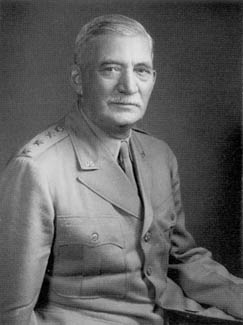BBG Watch Guest Commentary
BBG Watch occasionally publishes guest commentaries. This one is from a current Voice of America (VOA) language service journalist who prefers to remain anonymous.
Views expressed here are only those of the author and not of BBG Watch, its volunteers, or sponsors.
We invite those with opposing views and others who want to comment on this or other issues followed by BBG Watch to submit their op-eds for consideration.

The First and the Last Occupant of the Cohen Executive Office
By A Concerned Voice of America Journalist
Andy Lack took the Voice of America executive office when he entered the Cohen Building. He ordered renovations, and his newly acquired aides from among the permanent staff of the Broadcasting Board of Governors (BBG) moved around him. The corner suite of offices was to be the foundation of the new power structure at the old federal taxpayer-funded media agency which provides news to information-denied audiences and those seeking to learn about America. The offices offered proximity to its new brightest star. The planets must draw power from it, since they could not generate life themselves.
But the star took off after six weeks, unexpectedly, leaving the lifeless planets frantically searching for another host to latch unto.
How sad.
The once vibrant U.S. international broadcasting agency is now littered with idle bureaucrats. Hungry for power but short on knowledge and capability, they exhausted the resources, strangled the life out of journalism, and irreversibly damaged the morale of the rank-and-file reporters, broadcasters, web content producers, and program-support employees.
The agency desperately needs a leader, if for nothing else, to weed out some of the most harmful managers. Such a leader must be experienced, bold, and committed. Most importantly, her/his commitment must be toward the country in general and the agency in particular, not to herself/himself. He/she must want to serve, instead of being served. He/she must be an individual committed to public service. He/she must be a public servant.
Here I want to tell a long-forgotten story about the first occupant of the Cohen Building executive office. His name was William Signius Knudsen.
Knudsen, born in 1879, came from a poor family in Denmark. He moved to the United States when he was twenty, working in the newly founded automobile industry, first as an apprentice, than a technician, and then a manager in the Ford Motor Company. He was mostly responsible for the mass production of Ford’s signature car – the Model T. In 1924, due to an argument with Henry Ford, Knudsen left Ford Motor and later joined GM as the president of Chevrolet.
In his first all-hands meeting at Chevrolet, he entered the stage and shouted “ONE FOR ONE.” Before people understood what he said, he left the platform. His assistant later explained that he meant for Chevrolet to match Model T’s production output – at the time, for every Chevy coming out of the assembly line, Ford produced 13 Model Ts. In a few years, Knudsen so successfully re-organized the company that its assembly lines exceeded Model T production.
After World War II started in Europe in 1939, President Roosevelt asked his economic advisor Bernard Baruch to recommend three top individuals who could be in charge of boosting the industrial production capacity to meet the needs of the U.S. military. “Number one, Bill Knudsen; Number two, Bill Knudsen, and Number three, Bill Knudsen,” Baruch reportedly replied.
Harry Hopkins, the architect of Roosevelt’s New Deal, called Knudsen, telling him that the president wanted him to take charge of the war production effort. Knudsen, without hesitation, resigned his post as the president of GM and went to Washington. He met with Harry Hopkins in the White House, who somewhat embarrassed informed him that the Federal Government could not possibly match his private sector salary.
“This country has been very good to me,” Knudsen answered, “It’s time for me to pay back.”
Knudsen moved into the newly constructed Cohen Building, which is now the headquarters for the Voice of America and the Broadcasting Board of Governors, and became the Chairman of the Office of Production Management and member of the National Defense Advisory Commission. He received $1 as his annual salary.
The rest is history. Under Knudsen’s leadership, America met the most severe challenges. The United States first became the arsenal of democracy, and then went on to lead the Free World, defeating the Nazis on the battleground, and the Soviet empire largely through the war of ideas with the help of the Voice of America, Radio Free Europe and Radio Liberty.
VOA journalists were looking to Andy Lack to free them from the bureaucracy which makes it nearly impossible for them to meet the new challenge from countries and groups engaging in a new propaganda war in the digital age.
Compared to Knudsen, Andy Lack will be but a footnote in the history of the Cohen Building. People who remain here should not feel bad about his desertion – since he apparently did not care about the agency, he would not have been able to lead it, or to reform it.
But the stakes in terms of U.S. national security, peace and freedom around the world are simply too great for the Voice of America not to be reformed. VOA needs both a successful leader and a public servant to make it happen.
